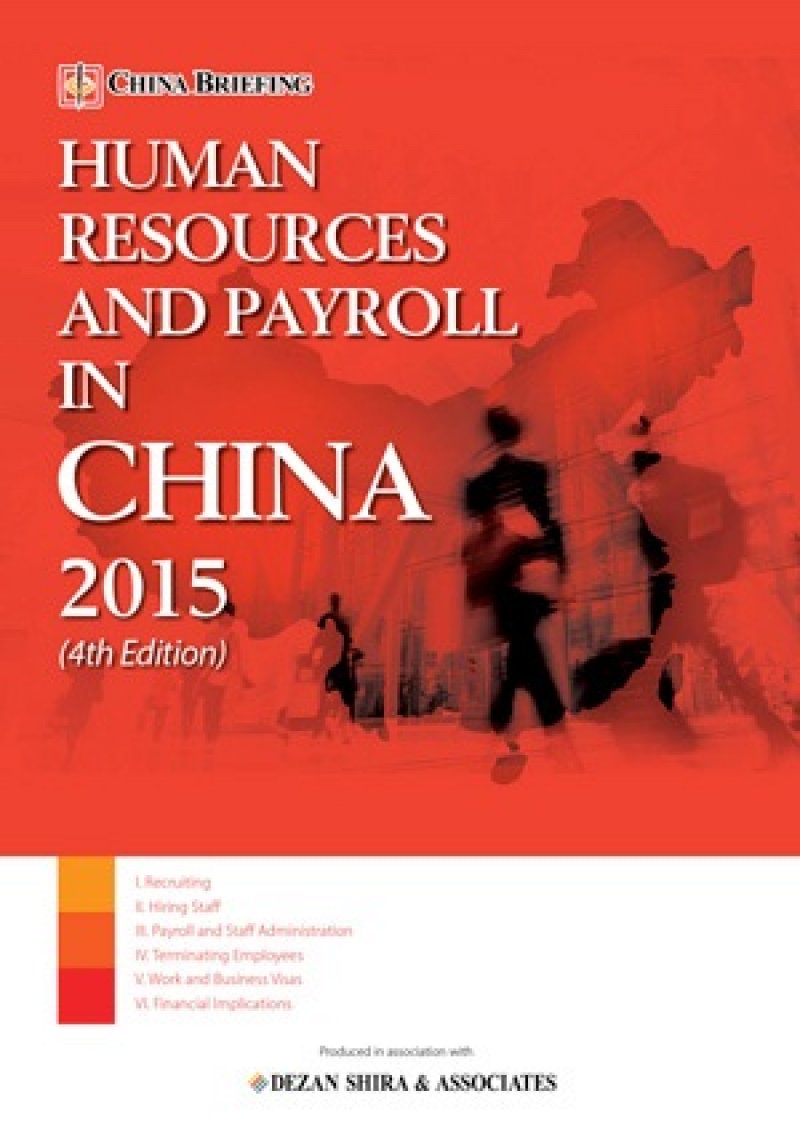The Extension of Labor Contracts in China: Legal Responsibilities and Risk Management
 By Dezan Shira & Associates
By Dezan Shira & Associates
Editor: Jake Liddle
Based on China’s Labor Contract Law, there are strict regulations on labor contract extensions. It is important for foreign companies to be aware of the hidden perils behind continued employment without a contract; without following the proper guidelines when negotiating an extension with an existing employee, there can be serious legal implications for the employer. This article discusses the correct procedures to prevent any further risks when extending a labor contract in China.
Case Study: Senior Managerial Role
An employer is relocating to a new office with a substantially larger team of staff. The previous manager is not qualified or competent enough to fill the managerial post in the new office, and the employer does not wish to resume the contract. The employer gives the mandatory 30 day notice of termination of the contract and compensatory severance payment. However, the employee is not willing to resign, and requests to resume the contract for another 6 months. The employer takes the employee’s situation into consideration, and eventually agrees to pay a portion of their wage if they resume working within the company.
 RELATED: Human Resource Services from Dezan Shira & Associates
RELATED: Human Resource Services from Dezan Shira & Associates
A Company’s Legal Rights and Responsibilities
The decision to extend the employee’s contract can be executed in a variety of ways, but if the employer does not follow the correct procedures, there can be many legal risks for the company in the future. So what factors should an employer consider when negotiating an extension of a labor contract?
If both parties agree to enter an extension of employment, they must commit to a formal written second labor contract. If the employer fails to do so, and resumes the unofficial work situation as seen in the above example, this could lead to many problems for the employer, including but not limited to legal action. Once a second labor contract has been signed, the company is responsible for setting an agreed date for the employee to commence work, but in doing so forfeits the right to end the contract. When a second labor contract comes to an end in China, the company is legally bound to sign a third labor contract for an unfixed length of time with the employee.
Risk Management
These risks can be avoided if the second contract is signed as a non-fixed period contract. There are alternatives to this second work contract which may seem attractive, including labor service contracts and fixed assignment contracts. However, their ambiguity in quality assessment and tendency to be signed for a fixed period can result in the above mentioned risks. A safer alternative is to compromise with a non-full time labor contract, which allows an employee to work for up to 4 hours a day, and does not require the company to contribute towards the employee’s social security tax fund or provide notice for termination of the contract.
These alternatives and risks should be carefully considered by an employer to ensure there are no future legal hazards or penalties caused by ambiguity or informality of contract extension.
|
Asia Briefing Ltd. is a subsidiary of Dezan Shira & Associates. Dezan Shira is a specialist foreign direct investment practice, providing corporate establishment, business advisory, tax advisory and compliance, accounting, payroll, due diligence and financial review services to multinationals investing in China, Hong Kong, India, Vietnam, Singapore and the rest of ASEAN. For further information, please email china@dezshira.com or visit www.dezshira.com. Stay up to date with the latest business and investment trends in Asia by subscribing to our complimentary update service featuring news, commentary and regulatory insight. |
![]()
 Human Resources and Payroll in China 2015
Human Resources and Payroll in China 2015
This edition of Human Resources and Payroll in China, updated for 2015, provides a firm understanding of China’s laws and regulations related to human resources and payroll management – essential information for foreign investors looking to establish or already running a foreign-invested entity in China, local managers, and HR professionals needing to explain complex points of China’s labor policies.
 Employing Foreign Nationals in China
Employing Foreign Nationals in China
In this issue of China Briefing, we have set out to produce a guide to employing foreign nationals in China, from the initial step of applying for work visas, to more advanced subjects such as determining IIT liability and optimizing employee income packages for tax efficiency. Lastly, recognizing that few foreigners immigrate to China on a permanent basis, we provide an overview of methods for remitting RMB abroad.
 An Introduction to Doing Business in China 2015
An Introduction to Doing Business in China 2015
Doing Business in China 2015 is designed to introduce the fundamentals of investing in China. Compiled by the professionals at Dezan Shira & Associates, this comprehensive guide is ideal not only for businesses looking to enter the Chinese market, but also for companies that already have a presence here and want to keep up-to-date with the most recent and relevant policy changes.
- Previous Article One Company, Two Systems – Hiring Hong Kong, Macau and Taiwanese Staff
- Next Article How to Hire Part Time Employees in China




























